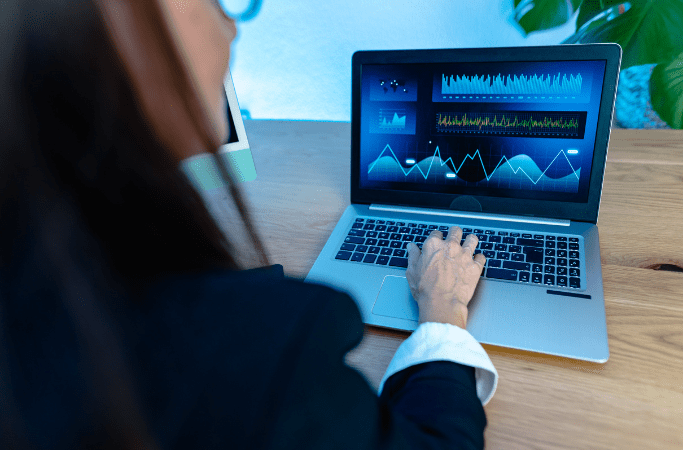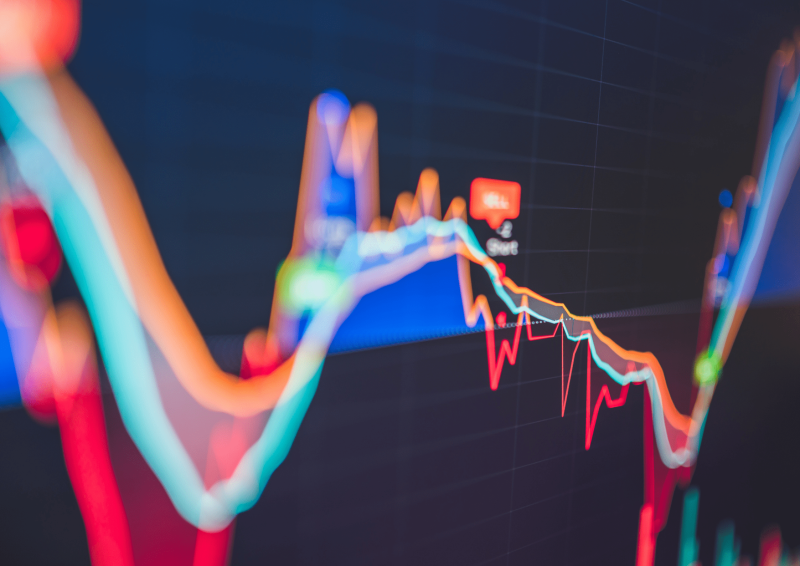Artificial Intelligence (AI) is making significant strides across various sectors, and its impact on the forex market is particularly noteworthy. AI technologies have revolutionized how currency trading is conducted by analyzing complex market data and identifying profitable trading opportunities. This advancement enables both experienced traders and beginners to gain valuable insights, enhancing their trading strategies and decision-making processes in the volatile forex environment.
As AI continues to evolve, its integration into forex trading platforms has allowed for the automation of trading strategies and improved trade execution. These AI-driven platforms can process and react to real-time market data faster than human traders, ensuring more efficient and informed trading decisions. The result is a more dynamic forex trading environment where traders are equipped with the tools to make more precise predictions and achieve better financial outcomes.
The Emergence of AI in Forex

The foreign exchange market (forex) stands as the largest and one of the most dynamic financial markets worldwide, where currencies are constantly exchanged. This market’s complexity is heightened by the sheer volume of financial data, market trends, and economic indicators that influence currency values. The fast-paced nature of forex trading demands rapid and accurate decision-making, which can often be overwhelming even for seasoned traders.
In response to these challenges, Artificial Intelligence (AI) has begun to transform the forex landscape by revolutionizing forex trading. AI’s capability to sift through and analyze vast amounts of market data in real time allows traders to better understand market conditions and enhance trade execution. This technological advancement not only improves the accuracy of trades but also increases the potential for profitability by identifying profitable trading opportunities more efficiently and effectively.
Also Read: Make Money With Automated Forex Trading
AI Driven Trading Platforms
AI-driven trading platforms harness the power of advanced technologies like machine learning and neural networks to predict future price movements and refine trading strategies. These sophisticated systems analyze patterns and trends within large datasets to forecast changes in the market, providing traders with a competitive edge. By automating complex analyses, these platforms allow traders to respond to market dynamics with greater precision and speed.
The capability of these platforms to process and interpret large volumes of real-time market data efficiently is a game-changer for forex trading. Traders are equipped to make informed trading decisions rapidly, minimizing the risk of delay and maximizing the potential for profit. This level of responsiveness and accuracy in analyzing real-time data ensures that traders can act on the most current information, optimizing their strategies to align with the ever-changing market conditions.
Enhanced Market Analysis with AI
AI-driven trading platforms harness the power of advanced technologies like machine learning and neural networks to predict future price movements and refine trading strategies. These sophisticated systems analyze patterns and trends within large datasets to forecast changes in the market, providing traders with a competitive edge. By automating complex analyses, these platforms allow traders to respond to market dynamics with greater precision and speed.
The capability of these platforms to process and interpret large volumes of real-time market data efficiently is a game-changer for forex trading. Traders are equipped to make informed trading decisions rapidly, minimizing the risk of delay and maximizing the potential for profit. This level of responsiveness and accuracy in analyzing real-time data ensures that traders can act on the most current information, optimizing their strategies to align with the ever-changing market conditions.
Automated Trading Strategies

Automated trading strategies have risen to prominence in the evolving forex market, driven by the capabilities of AI algorithms and trading bots. These technologies test a wide array of trading strategies against extensive historical data to pinpoint the most effective approaches. This method of automation not only refines the strategies themselves but also enhances the consistency of their application, a critical factor in the fast-paced trading environment where quick and precise decisions are paramount.
The use of automation in trading strategies significantly reduces the impact of human emotion on trading decisions, a common pitfall for many traders. Emotional trading often leads to inconsistent results and can prevent traders from adhering to their planned strategies. By implementing AI-driven tools, traders can adhere to systematic, data-driven approaches, minimizing the risk and enhancing the likelihood of achieving consistent, profitable outcomes.
Risk Management and AI
Effective risk management is a cornerstone of successful trading, and AI systems play a crucial role in enhancing these capabilities. By analyzing market volatility, trading margins, and trading capital, AI tools provide a robust framework for developing risk management protocols. This advanced analysis helps traders understand potential risks and adjust their strategies accordingly, ensuring that they are aligned with both market conditions and individual risk tolerance levels.
These AI-driven risk management systems allow for real-time strategy adjustments, enabling traders to respond swiftly to changing market dynamics. This adaptability is essential in the forex market, where conditions can change rapidly and unpredictably. By leveraging AI for risk management, traders can better manage their exposure to losses while positioning themselves to capitalize on opportunities as they arise, all within their specified risk parameters.
AI and Trade Execution

Trade execution is dramatically enhanced by the use of AI-driven systems, which are capable of executing trades at the most opportune moments. These systems utilize advanced algorithms to analyze the market conditions and determine the ideal timing for trade placement, maximizing potential returns while minimizing risks. This precision ensures that trades are not only executed swiftly but are also more likely to align with favorable market shifts, thereby increasing the efficacy and profitability of trading strategies.
The ability of AI to accurately gauge market sentiment plays a crucial role in its impact on trade execution. By processing vast amounts of data to interpret current market trends and sentiment, AI tools can predict short-term market movements with a high degree of accuracy. This capability allows for rapid and informed decision-making, making AI a game changer in the forex trading landscape, where timing and precision are paramount to success.
Ethical Concerns and Future Implications
While the integration of Artificial Intelligence (AI) into financial markets offers transformative benefits, it also raises significant ethical concerns. Issues such as privacy, data security, and the potential for AI systems to manipulate market conditions unintentionally are at the forefront. These concerns highlight the need for robust ethical standards and regulatory oversight to ensure that the deployment of AI technologies protects both individual traders and the overall integrity of financial markets.
As AI becomes more embedded in the financial sector, the industry must proactively address these ethical challenges. It is crucial for regulators, technology developers, and market participants to collaborate in creating comprehensive guidelines and frameworks. These measures should aim to prevent misuse of AI, manage its impact on market stability, and ensure transparency in AI-driven decisions. This collective effort will be key in harnessing the benefits of AI while mitigating potential risks and maintaining public trust in the evolving financial landscape.
Conclusion
AI is indeed transforming the forex trading landscape. With AI trading, algorithmic trading, and high frequency trading, the capabilities and efficiency of the market are being enhanced. As technology advances, the role of AI in forex will likely become more pronounced, making it an indispensable tool for trading forex in an increasingly complex market environment.
By integrating AI, traders can navigate the forex market more effectively, making it crucial for anyone involved in this field to understand and adapt to these changes. As we look to the future, the integration of AI in forex promises to bring more sophisticated strategies that could redefine how currency trading is conducted.
Also Read: Forex Trading Robots And Algorithms
FAQs
How does AI improve forex trading?
AI enhances forex trading by analyzing large volumes of market data, predicting future market movements, and executing trades with high precision and speed. This leads to more informed trading decisions and the potential for higher profitability.
What are some risks associated with using AI in forex trading?
Risks include the potential for over-reliance on automated systems, privacy concerns related to the vast amounts of data processed, and unintended market consequences due to algorithmic trading errors. Addressing these risks requires robust regulatory oversight and ethical standards.
Can AI in forex trading adjust to sudden market changes?
Yes, AI systems are designed to analyze real-time data and can swiftly adjust trading strategies based on current market dynamics. This responsiveness allows traders to better manage risks and capitalize on emerging trading opportunities as they occur.



